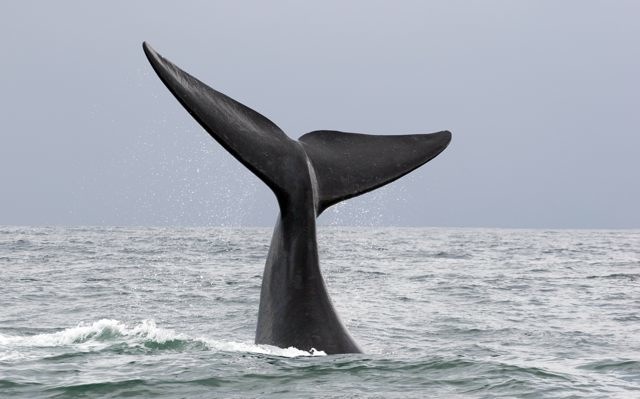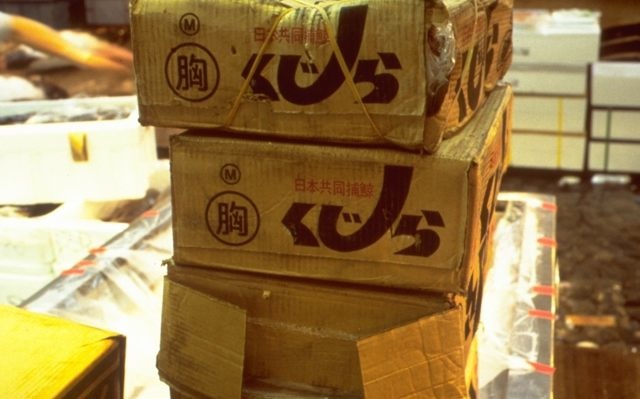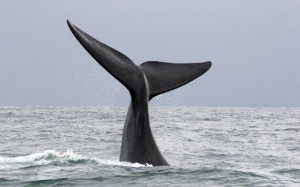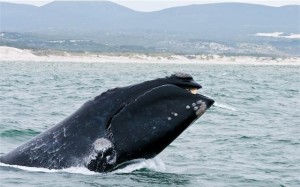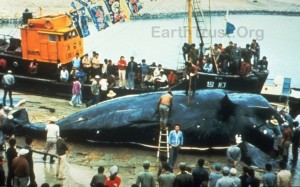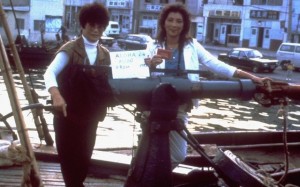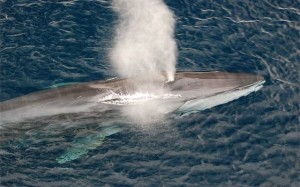Pirate Whaling vs. Avon Ladies
Mission: infiltrate the Korean dockside to get proof endangered whales were being illegally flensed.
When entire nations support illegal whaling on endangered species
it can be a catastrophe. There’s no reporting to the whaling commission: a whale is quickly flensed into nondescript chunks of meat which may then be exported through organized-crime networks to the highest-paying market, which is usually Japan. There endangered species are a high-status luxury food among some consumers with too much money and too few scruples.
Right Whales are one of the most endangered whales on the planet. They got their name since being slow-swimming, and floating after death, they were considered the “right” whale by early whalers. Theoretically protected since WWII, ET’s team got proof of right whale flensing on the docks at Ulsan.
Ah, but the “impossible” part was getting into the whale-flensing area to get photo-documentation, and getting out alive. Angry pirate whalers with enormous flensing knives and an important secret to keep can make such an undertaking chancy.
ET has investigated and exposed many incidents of whaling over the years, but one such “impossible mission” which makes a good story is the Korean whaling at Ulsan. ET’s Korean supporters reported rumors of ongoing pirate whaling, but they also reported that the docs where the whales were flensed were off limits to anyone who might be a conservationist.
So we sent Avon ladies.
The team of Olivia Young and Caroline Takahashi used Avon credentials to infiltrate the dock areas, because pirate whalers work hard in tough conditions and arguably could really use some cosmetics. And really, who suspects Avon ladies? They were able to get stunning pictures of fin whales, and even a right whale, being flensed. But the fin whales weren’t being flensed in the daylight, so they had to use flash photography.
Fin whales are considered a depleted species, near commercial extinction. Yet our Avon ladies found them being flensed as well.
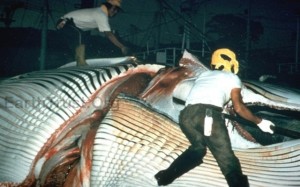
Now there are many things which might pass for inconspicuous on a dock where a huge whale is being illegally cut to pieces for the organized crime trade. Two avon ladies in dresses firing flash cameras weren’t among those things, so they were charged by the blood-soaked whalers to confiscate their cameras.
Olivia, was a former Korean policewoman, defended herself. So it became an on-dock karate encounter between the Avon ladies and the whalers.
The Avon ladies won, and for good measure Olivia chased the captain up the mast of his whaling ship, then got the crew arrested for hassling Avon ladies, by calling on her contacts in Korea’s police department.
So ended whaling by the nation of Korea, which has not resumed since. The photos of whaling on endangered species were presented to the IWC as proof of a clear infraction of laws and treaties, and the nation of Korea began enforcing its existing laws and treaty obligations against the harpooning of whales.
Yes, karate-wielding Avon ladies sounds like an offbeat plan. But the core of the plan, using campaigners who were familiar with the local culture and well-connected, and a parent organization which could use the photos to shut down the operations, is really what carried the day. It was a whaling nation which had operated for decades, and it was discovered and closed by an inexpensive and well-executed undercover campaign.
Unfortunate side story: “accidents” happen
The S. Korean harpoon ships were stopped via this expose and the pressure it brought to bear, alongside conservation wins at the IWC.
But the city of Ulsan today has many tourist-oriented whalemeat restaurants, and at $30 to $100 a plate, it isn’t for people who actually need to eat it. Where does it come from?
It turns out it was “accidentally” caught by being entangled in nets, and thus not “whaling” by most definitions. This may make little difference to the whales. With individual whales worth tens of thousands of dollars, and quasi-legal to sell, it’s amazing how often nets just happen to be set in front of whales these days.
The number of whales killed is down from the days of unrestrained harpooning, but is rising as the restaurant trade makes it seem trendy to eat a plate of whale.
There’s no such thing as permanently saving a species or a population. New challenges mean new campaigns. As long as high-priced end markets exist, whales won’t be safe around humans.

